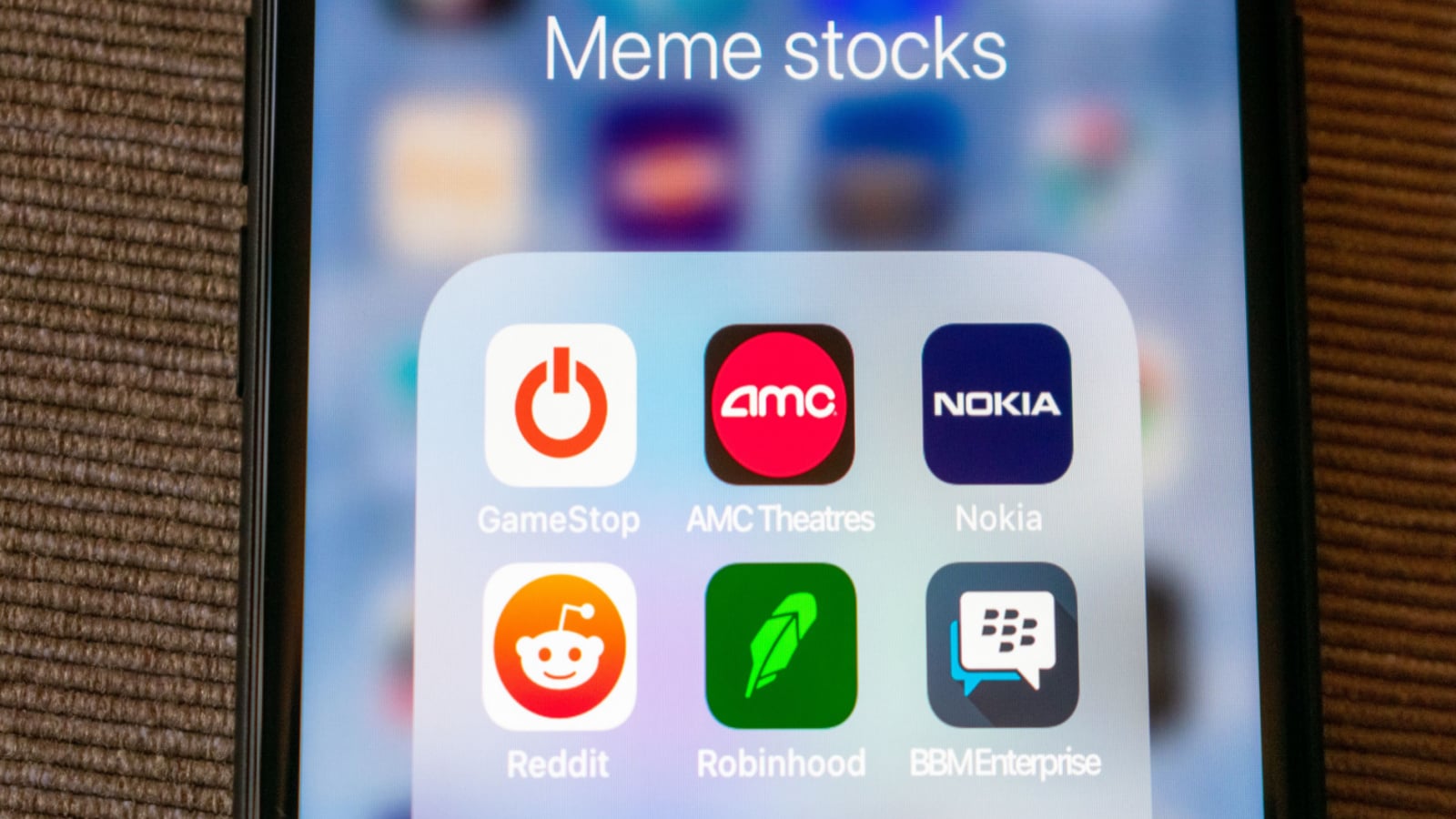This past November, Roundhill Investments announced it was closing the Roundhill MEME ETF after less than two years due to poor net assets resulting from the terrible performance of stocks held by the ETF. Some of these poorly performing meme stocks to sell remain just that: stocks to sell.
“‘The marketplace decides what survives and what doesn’t,’ said Dave Mazza, chief strategy officer at Roundhill. ‘The meme ETF was attempting to capture a zeitgeist’ and the market’s focus shifted to products that offer stability and safety, he said,” Reuters reported at the time.
Who were some of the names in the ETF? I looked up MEME’s schedule of investments for June 30, 2023, and I found that the three leading industries by weight at the time were Retail (16.2%), Software (15.2%), and Auto Manufacturers (12.4%).
None of the four names from Software are bad stocks, however, there are at least a couple of retail and auto manufacturers from which to choose. To diversify further, I’ll add a third from a fourth industry.
Here are my three meme stocks to sell in March that are still popular on the subreddit WallStreet Bets.
Rivian Automotive (RIVN)

I recently wrote about Rivian Automotive’s (NASDAQ:RIVN) Hail Mary. What Hail Mary, you ask? The one where it launches three additional vehicles for future production at a time when it loses $48,000 per vehicle that it currently produces.
I don’t find its two existing vehicles—the R1S SUV and R1T pickup—very attractive. Frankly, the front looks extremely cheap, especially those headlights. But fortunately for the company, I’m not an automotive critic.
It’s not that I don’t want Rivian to succeed—I do. Consumers win when more EV startups become profitable at scale and prices come down without eating too much into profits. However, we’re not at that stage yet.
As for investors, I don’t know why you would invest in a company that lost $2.7 billion on an adjusted EBITDA (earnings before interest, taxes, depreciation and amortization) basis in 2023 when you can own Li Auto (NASDAQ:LI), which generated $6.2 billion in free cash flow last year.
On March 12, Morgan Stanley projected LI stock would hit $74 in the past year, almost double it’s current trading value. Interestingly, Li Auto doesn’t make Quiver Quantative’s list of the 50 top meme stocks.
Put yourself in a position to win. Sell RIVN and buy LI.
GameStop (GME)

GameStop (NYSE:GME) is one of the two meme stocks that define the Reddit retail investor movement. Without GameStop’s massive move caused by a short squeeze in Jan. 2021 — GME stock went from $17.25 on Jan. 4 to a pre-market price of $500 on Jan. 28 — we might not have meme stocks today.
As I write this, GME stock trades at $15.07, down nearly 10% on the year but up 444% over the past five years. This indicates that meme-stock investors remain committed to CEO Ryan Cohen resurrecting the struggling video game retailer.
My InvestorPlace colleague Faisal Humayun recently discussed why GME wouldn’t be turned around anytime soon. Humayun said its stock remains expensive at nearly 100 times its forward price-to-earnings ratio.
On one hand, GameStop does have $1.2 billion in cash, equivalent to $3.93 a share based on 305 million outstanding as of Oct. 28, 2023. Conversely, after subtracting its total debt (long-term debt plus operating lease liabilities) of $614.2 million, the net cash drops to $586 million, or $1.92 a share.
Unfortunately, despite its cost-cutting, the company generated a negative cash flow of $193 million through the first nine months of 2023. It reports Q4 2023 on March 26 after the market closes. There will be no miracles in GameStop’s fourth-quarter report.
AMC Entertainment (AMC)

InvestorPlace’s Samuel O’Brient reported on March 12 that AMC Entertainment (NYSE:AMC) was expanding its popcorn deal with Kroger (NYSE:KR), Publix, and Amazon (NASDAQ:AMZN). As a result, it has doubled the number of stores that will carry its popcorn brand.
Should Frito-Lay, who makes Smartfood, America’s top-selling popcorn brand, be worried? According to Snack Food & Wholesale Bakery, Smartfood’s sales were $425 million through the 52 weeks ended May 17, 2020. Several other brands, including SkinnyPop, BoomChickaPop, Pop Secret, and Orville Redenbacher, followed behind it.
Even if AMC’s popcorn were to magically surpass each of these brands and become available in every grocery store in America, its revenue would likely only be around $400-500 million. Assuming a 50% gross margin, that’s $250 million in gross profits at the high end of revenue.
In 2023, AMC’s gross margin for admissions was 52%, and its gross margin for food and beverage was 81%. Concessions have always been the bread and butter (pun intended) for movie theater operators.
So, if maxed-out grocery store popcorn sales existed in 2023, AMC’s revenues would have been 10% higher than the $4.80 billion reported ($500M divided by $4.80 billion). The gross profit would have been $3 billion, with a gross margin of 57% and $5.3 billion in revenue.
That’s all good. Except there’s another $3 billion-plus in operating expenses to contend with including rent, various operating costs such as hydro, impairment of assets, depreciation and amortization. These costs would continue to make it challenging to make a reasonable profit under the current box office.
AMC remains a meme stock to sell, even at $4.
On the date of publication, Will Ashworth did not have (either directly or indirectly) any positions in the securities mentioned in this article. The opinions expressed in this article are those of the writer, subject to the InvestorPlace.com Publishing Guidelines.
